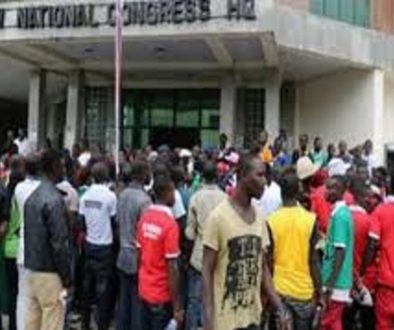Rwanda: Officials Work to Iron out Contentious Issues Ahead of AFCFTA Signing
As the signing of the African Continental Free Trade Area draws closer, Foreign Affairs Ministers from across the continent are working to address three remaining contentious issues in the draft.
Among the top contentious issues in the 250-page draft document, is the fate of the CFTA secretariat after signing of the agreement.
The council is set to decide on whether the CFTA secretariat will serve as an independent commission overseeing implementation of the agreement and reporting directly to Heads of State and Government or remain under the African Union Trade Commission.
This is important as it will determine the organ’s strength of oversight during the implementation process.
Another item still being debated is the admissibility of reservations during the implementation of the agreement.
This will determine whether countries can be signatories to the agreement but choose not to be part of certain clauses during the implementation.
A section of countries prefer signing the agreement but with reservations on implementing aspects they feel they are not ready for.
But some countries, including Rwanda, fear that allowing reservations could limit the effectiveness of the agreement during the implementation.
Olivier Nduhungirehe, Rwanda’s Minister of State for Foreign Affairs, told The New Times that allowing countries to implement the agreement only on certain aspects they deem convenient for them could render the entire document ineffective.
Another key point still under negotiations is the minimum number of ratifications required for the agreement to take effect.
The initial proposal was 15 ratifications; however, countries have been calling for the number to be increased to 22.
Tanzanian Minister of Foreign Affairs and International Cooperation Augustine Mahiga told The New Times a section of countries prefer 22 ratifications to 15 to ensure that the agreement is effective beyond a regional bloc.
He said that if the number remains at 15 ratifications, it could easily be met by a regional economic bloc such as SADC or ECOWAS.
Nduhungirehe is optimistic that these are issues that can be looked into and addressed ahead of the signing as African countries understand the potential transformational impact of the agreement.
When implemented, the trade agreement could drive up intra-Africa trade by about 52 per cent among other impacts, United Nations Economic Commission for Africa estimates show. Intra-Africa trade is currently at about 14 per cent.
Mahiga also expressed optimism that any issues under review will be agreed upon prior to the signing.
He said that Regional Economic Communities are good building blocs for the implementation of the agreement and to facilitate its effectiveness.
Culled from New times


